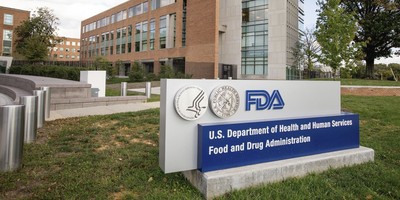President Obama recently touted his credentials as a job creator, highlighting the 49% increase in foreign investment experienced by the U.S. in 2010. Unfortunately, the $194 billion invested in the country by foreigners falls substantially short of the $328 billion figure seen in 2008.
While a slight rebound in the economy has led to some increased investment, an uncertain business atmosphere continues to divert needed capital from the U.S. or simply keep it on the sidelines.
Supporting claims by many in the private sector that the President “doesn’t get it” when it comes to job growth, the administration is pushing for increased and costly federal regulations as Americans struggle to crawl out of recession. Uncertainty surrounding these regulations means that businesses large and small have taken a wait-and-see approach on investing and creating new jobs.
At the forefront of concern, the Environmental Protection Agency is primed to pile on new costs, including time consuming permitting processes, requiring firms with expansion plans to receive agency approval to grow and hire. Amazingly, the White House is trying to position additional regulation as an avenue for job creation.
In a report released by EPA in late 2010, titled The Benefits and Costs of the Clean Air Act 1990 to 2010, the agency tries to show vast economic benefits of existing regulations, providing political cover for the President as he seeks to heighten and expand agency authority. Astoundingly, EPA states that Clean Air Act regulations will create $2 trillion in economic benefits in 2020, or 10% of national GDP.
Recommended
Economist David Montgomery analyzed EPA’s supposed benefits of regulation and noted “that the claimed $2 trillion benefit has nothing to do with the actual amount of goods and services produced in the U.S. economy or the number of jobs that are available.” Instead, Montgomery points out that the EPA analysis is based on speculation based on various surveys, and therefore, “the $2 trillion net benefits claimed by EPA will never show up as increased output or jobs in the real economy.”
On the other hand, the $109 billion in costs due to this EPA regulation has a direct impact on hiring and economic expansion.
The Administration’s tactics on this issue are far from surprising. With 38% of the country strongly disapproving of President Obama’s performance, and jobs remaining the nation’s top priority, the White House is trying to boost its credentials wherever possible. However, this absurd attempt to frame business stifling regulations as a tool to increase employment indicates that the President might be running out of tricks. Consider that the EPA report showing costs of $109 billion by 2020 only takes into account existing regulations.
EPA intends to ramp up regulations. A recent economic modeling analysis by the American Council for Capital Formation predicts that by 2014, heightened EPA regulations will cost the nation between 476,000 to 1,400,000 jobs and $47 billion to $141 billion in GDP.
To make matters even worse, of course, the Administration is calling for higher taxes to address budget deficits and a rising national debt. But a better option exists – pro-growth tax and regulatory reforms. By streamlining the tax code, and relieving U.S. job creators from the heavy burdens of increased taxes and regulatory expenses, hiring will improve and GDP will be unleashed.
It will be private sector growth led by small businesses, not increased government regulation and taxes, that will lead the nation out of the current economic slump. Unfortunately, the President and his ambitious bureaucratic regulators fail to grasp this fundamental economic truth.
























Join the conversation as a VIP Member